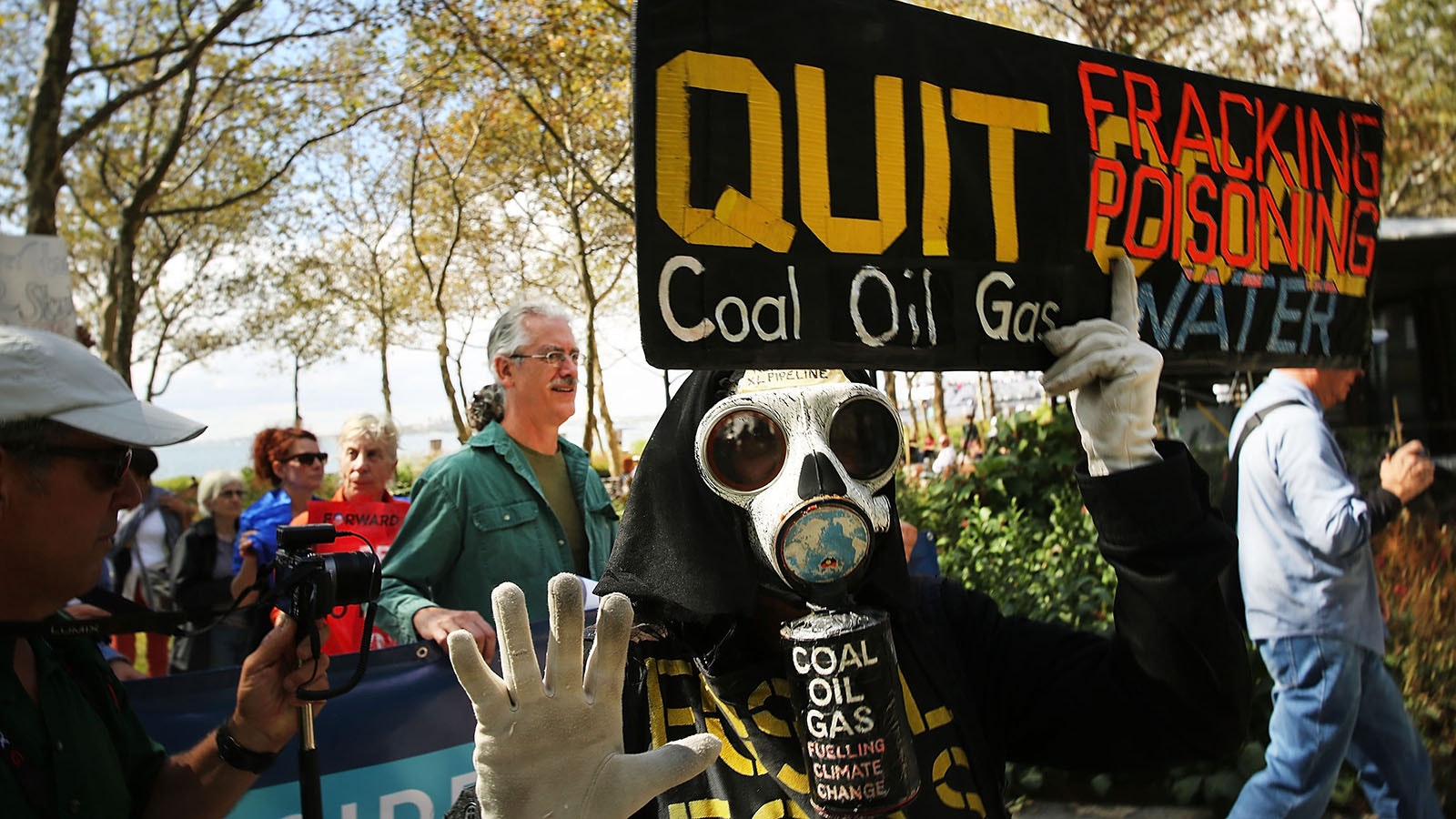A new study claims that oil companies should pay reparations for the harm they cause to the climate. The top oil producers in the world, according to the researchers, owe at least $209 billion every year to compensate communities for all the harm they allegedly cause.
The study, which has received positive reports in the Guardian, Inside Climate News and Mother Jones, was funded by anti-fossil fuel nonprofits, the Rockefeller Brothers Fund and Rockefeller Family and Associates.
Hayden Ludwig, director of policy research at Restoration of America, hadn’t read the study and couldn’t comment on it.
But he told Cowboy State Daily there’s a flaw in the climate activists’ moral calculations when it comes to energy policy — they ignore that fossil fuels raised billions of people out of extreme poverty and brought them into the modern world with all its conveniences, like plastic, cars, airplanes and cheap energy.
“The left wants to blithely ignore these miraculous benefits and call the fuels responsible for these breakthroughs evil,” Ludwig said. “But I can't think of anything more evil than in condemning the entire human race to energy poverty forever.”
Fossil-Fueled Development
The study uses an estimate of 3 degrees celsius of warming above pre-industrial levels, which is based on an extreme scenario that scientists now believe to be highly implausible.
From that scenario, the researchers calculate losses to the global gross national product (GDP), a measure of the value of all goods produced on Earth, as a result of climate change. The study’s authors then divide out a share of the losses to all the world’s largest oil producers based on how much they produce.
Climate scientist Patrick Brown, adjunct faculty in energy policy and climate at Johns Hopkins University, recently peer-reviewed several papers that quantify various societal impacts of climate change.
Brown explained on Twitter that these studies fail to grapple with, or even acknowledge, that society is “essentially a product of fossil-fueled development since the Industrial Revolution.”
This leads the researchers to quantify negative consequences of climate change to imply the need for faster or stricter emissions reductions policies.
Since that implication doesn’t consider the ramifications of restricted energy use or economic development, and only looks at the value of reducing climate change, the value of the research is limited, Brown explained.
Besides being funded by activists dedicated to the elimination of fossil fuels, the climate reparation study uses terms like “climate breakdown” and makes no mention that global gross domestic product stems in part from industries that are powered by fossil fuels.
Cowboy State Daily reached out to the study’s lead author, Marco Grasso of the University of Milan-Bicocca, to ask if the study’s funders might have contributed to a bias against fossil fuels in the research and the lack of consideration of what the impacts would be to GDP in the absence of fossil fuels.
Grasso referred Cowboy State Daily to an excerpt in his book “From Big Oil To Big Green,” where he argues that oil companies have a moral obligation to do no harm. Grasso doesn’t explain why that doesn’t apply to policies that would eliminate or restrict the use of fossil fuels.
In the excerpt, Grasso argues that since oil companies were out to make a profit and not providing products for free, any benefits to consumers that are derived from those products are irrelevant.
He then goes on to draw a parallel between arguments about the benefits of fossil fuels to arguments against the abolition of slavery.
Since slavers argued abolition would hurt the economy, Grasso argues in his book, then it’s similar to the arguments that people, who purchase fossil fuel products willingly, would be harmed by energy poverty and the loss of products like plastics, steel and modern fertilizers, if fossil fuels were restricted or eliminated.
Hypocritical?
Steve Degenfelder, land manager for Casper-based Kirkwood Oil and Gas, told Cowboy State Daily that these studies are not part of an overall consensus and should be questioned.
“Very seldom do you see a study that everybody agrees on,” Degenfelder said.
He compared the use of these studies to condemn oil and gas to the way activists launching lawsuits against oil companies shop for judges who are sympathetic to their causes.
He said it’s also hypocritical for activists to continue to use products and energy from oil and gas while morally condemning the industry.
“It just seems disingenuous. If you’re protesting against an industry that is providing the very benefits that you’re enjoying, it almost seems very elitist to have that point of view,” Degenfelder said.
Contact Kevin Killough at Kevin@CowboyStateDaily.com





